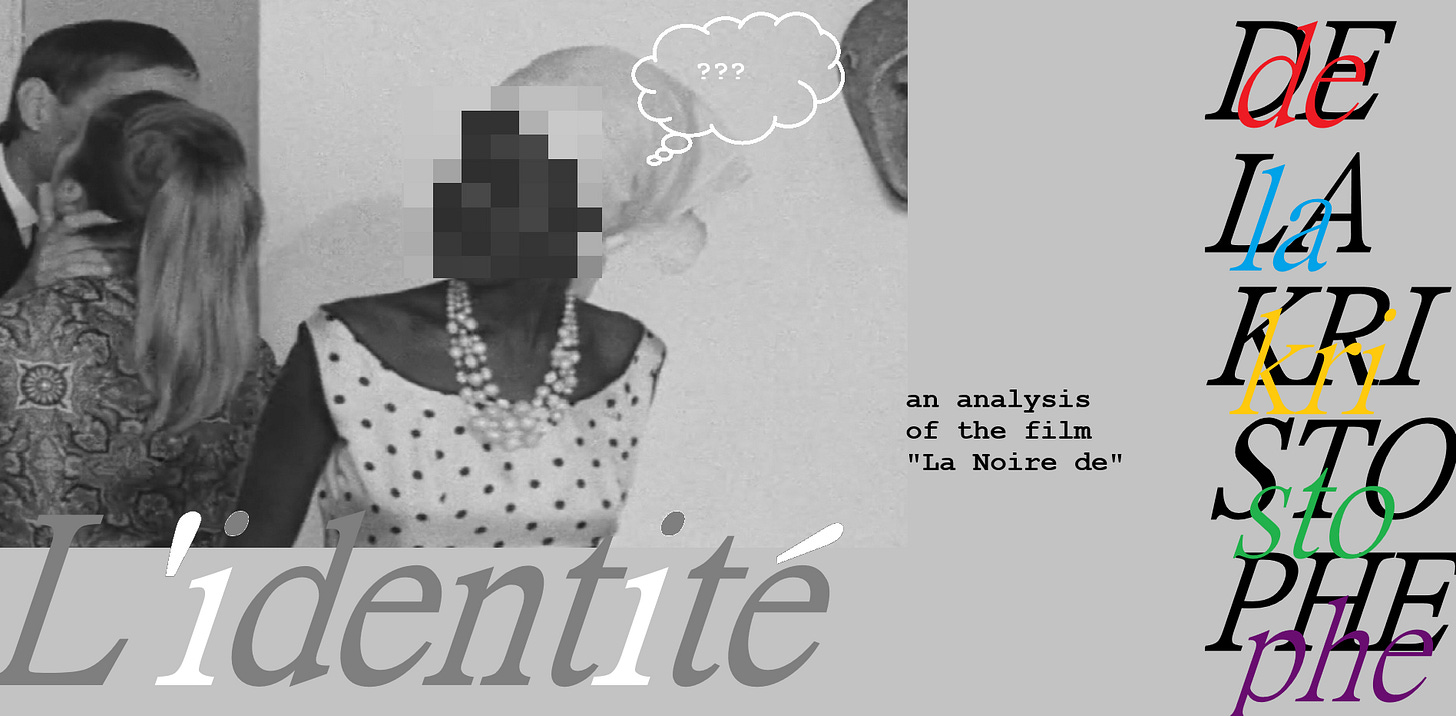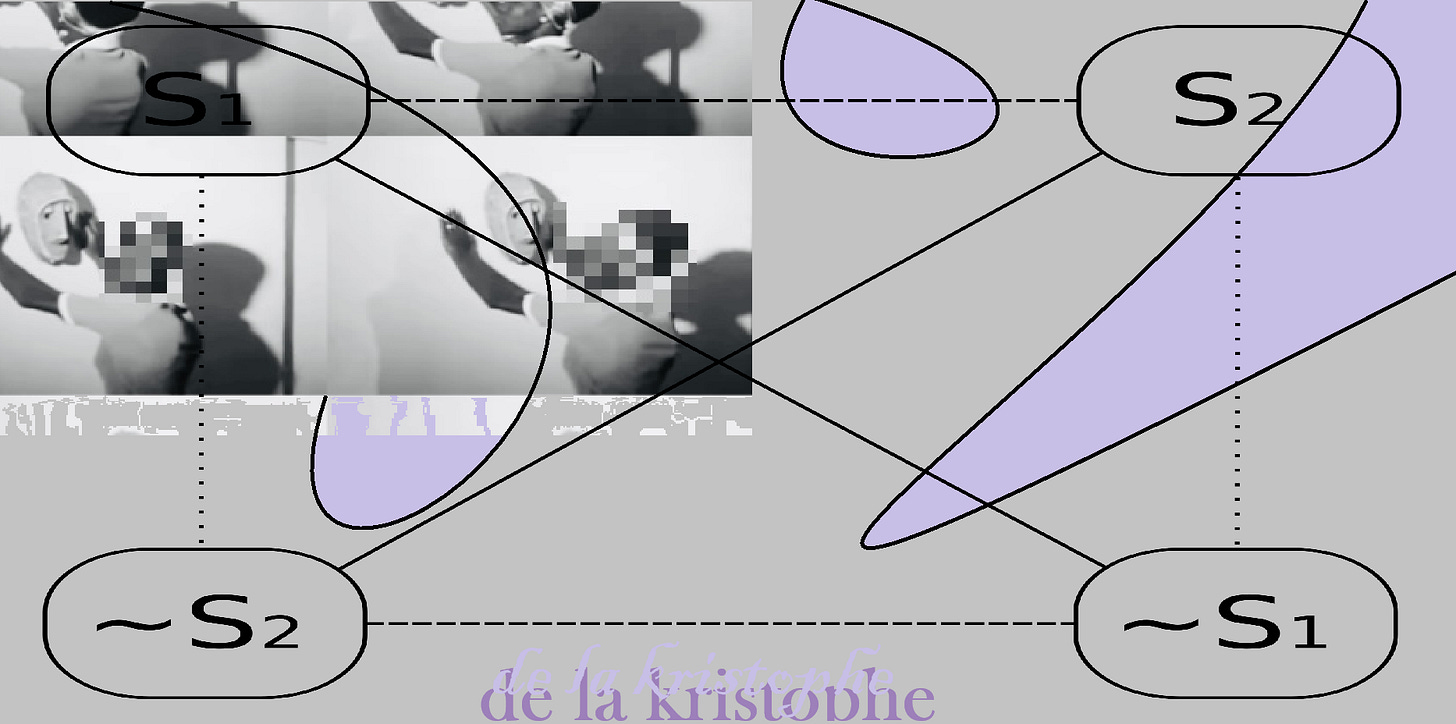If one feels comfortable with metaphor, it could be said that the film La Noire de by Ousmane Sembene has the concept of abstraction—perhaps cultural abstraction—as a focal point of its thematic concerns. A semiotic analysis of just one scene suffices to highlight what is meant by this and does so succinctly.
La Noire de is a 1966 Senegalese film that has grown to be known as one of the greatest films in the history of world cinema. It features a woman by the name of Diouana. She moves to Antibes, France from her home in Dakar, Senegal to work for a French couple. At first she is consumed with thoughts about her imagined future in France, in which she will be able to cultivate for herself a life of novelty, self-fulfillment, and freedom. She is quickly disappointed when she begins to be mistreated and regarded with harshness by this same couple, like when the matriarch of the house yells at her when she deems that Diouana is taking too long to wake up in the morning. She is also treated to confusing fetishization, for example when a friend of the couple kisses her with a smile because he has never kissed a Black woman before.
Her experiences are an example of cultural abstraction, (a concept of someone’s cultural identity being compressed, altered, or diluted so as to construct an artifact in the image of said original identity and to make it more palatable for consumption by others) and this abstraction is a where the dramatic energy of the film takes place. Often times, Diouana is either framed as the only person in a shot or filmed at the center, close, or otherwise contrasted or emphasized in relation to her environment.
There is a scene in which Diouana puts on a pair of stylish shoes, and upon trying to leave, the matriarch of the house yells at her (this is a scene in which the matriarch’s head is put in the shot’s foreground, giving her more real estate on the screen than Diouana, who is made to look small) to take them off and to remember that she is still a maid. Diouana complies and turns her face away from the camera to take the shoes off, away toward a wall onto which an African mask is affixed. This is an example of this thematic expression. This is especially true given the diegetic cue of the matriarch’s scolding. Her face disappears from the screen and symbolically reappears, abstracted into a cultural artifact hung up on the walls of the woman’s apartment. It is obvious that the mask is unmoving, lifeless, and does not speak. In a culturally oppressive landscape, it is preferable for whomever is placed in the dominant role to have someone either passive, indolent, or invalid on the opposite side of them. That way one does not need to worry about anyone fighting back, resisting.
One could say that given this context of cultural abstraction (which has actual historical basis closely related to the themes of the film, as France as a culture has an extensive history of colonialism, a heinous example of the theory of cultural abstraction,) the final decision of Diouana is nothing at all if not bittersweet. It is a different, sadder type of cultural abstraction. But it is also a stronger, freer kind, one where the object of choice and agency is placed in her hands, where it belongs if it belongs anywhere. It is regrettable that agency has to be realized in such a way.





Beutiful analysis. I'll have to look up and watch the movie. Thank you.